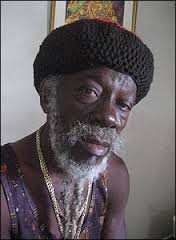
The question of who actually composed Bob Marley’s classic song “No Woman, No Cry” has fascinated scholars of the reggae legend for 40 years.
Now the 1974 song, one of Marley’s most covered hits, is at the centre of a High Court battle over publishing rights to the Jamaican pioneer’s back catalogue.
Blue Mountain Music, the company created by Chris Blackwell, the Island Records founder who launched Marley’s international career, is being sued by Cayman Music, which represented Marley’s catalogue from 1967 to 1976.
Cayman accuses Blue Mountain of “misattribution and diversion of income” of a number of the Jamaican star’s hits.
Cayman told the High Court that it has never been credited for its share in No Woman, No Cry and 12 other songs written by Marley between 1973 and 1976.
Hugo Cuddigan, for Cayman, said Marley agreed a publishing deal with Cayman but had “fraudulently” attributed the songs to other people to avoid the provisions of that 1973 agreement.
Vincent Ford, a friend of Marley’s who ran a soup kitchen in Trenchtown, the ghetto of Kingston, Jamaica, where he and Marley grew up, is listed as No Woman, No Cry’s composer.

The song, a depiction of what life was like for the pair “in the government yard in Trenchtown”, became an international hit.
The royalty cheques received by Ford ensured the survival and continual running of his soup kitchen until his death in 2008.
In an obituary of Ford in The Independent, Spencer Leigh wrote that circumstantial evidence suggested that he did not actually write No Woman…, although it was written in Ford’s flat as he and Marley reminisced.
Leigh concluded: “He [Marley] did not want his new songs to be associated with Cayman and so, in all probability, he put them in the names of his wife, Rita, the Wailers or other close friends to find a way around tight publishing restrictions. This spreading out of writing credits would also have allowed Marley to provide lasting help to family and close friends.”
Cayman argues that it has been denied its contracted entitlement for over 40 years. Mr Cuddigan said No Woman, No Cry was the “jewel in the Marley catalogue” and his most famous song.
Ian Mill QC, for Blue Mountain, said on the “straightforward application of ordinary principles of contract law” the claim had to be dismissed.

He accepted that Marley had “falsely claimed” that the 13 songs had been composed by other people in an attempt to “escape the automatic assignment of their copyright to Cayman”. But he said it was “common ground” that as a matter of law the “ruse was ineffective”.
Mr Mill said the “plain intention” of a subsequent 1992 agreement, 11 years after Marley’s death was to “transfer all rights” from Cayman.
The contested songs include “Positive Vibration”, another track credited for Ford, and “Crazy Baldhead”, an attack on the white colonialists who subjugated Jamaicans, which is shared with Rita Marley.
No Woman, No Cry has been covered by artists including The Fugees, Nina Simone, Linkin Park and Boney M.

You must log in to post a comment.